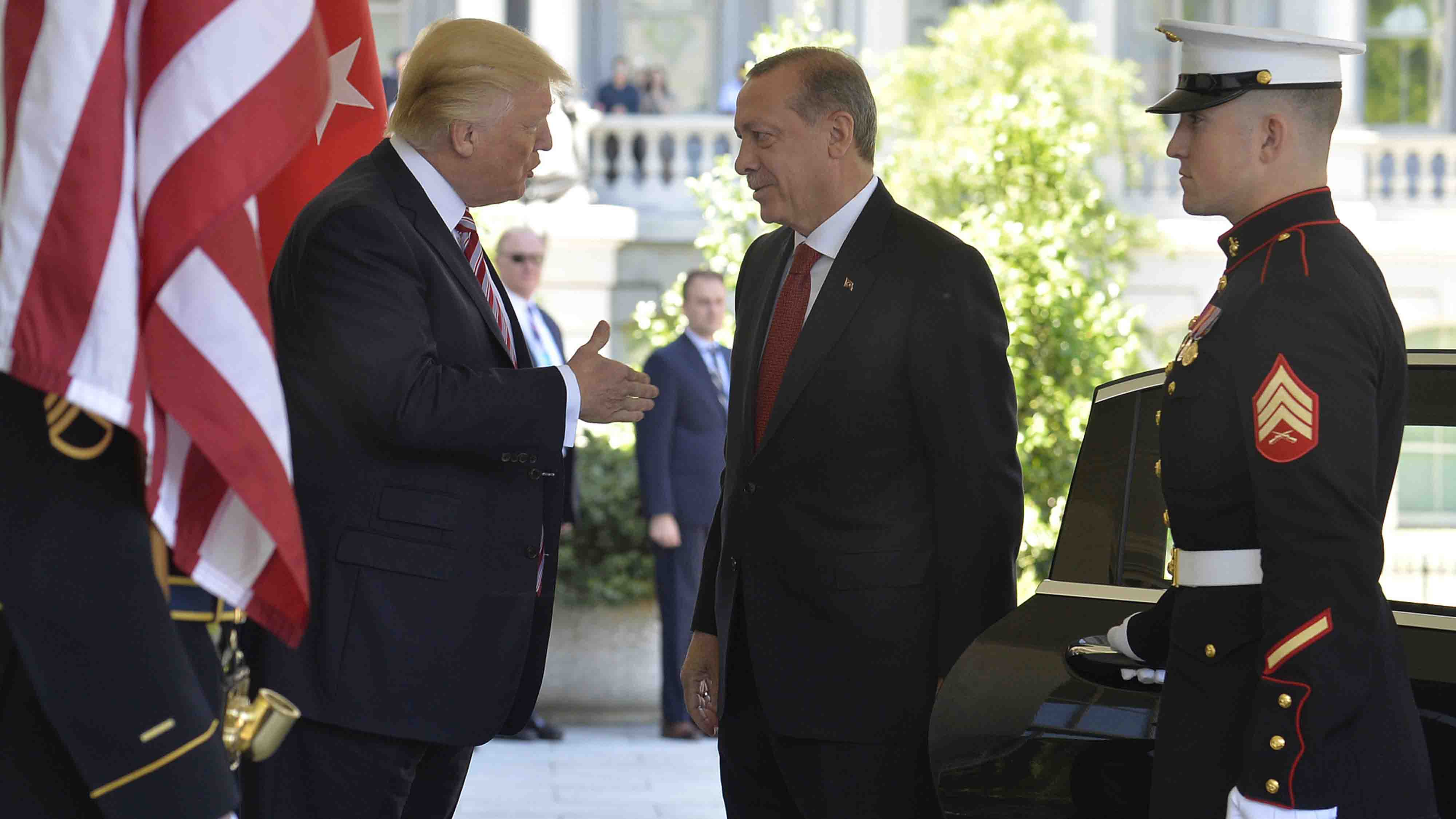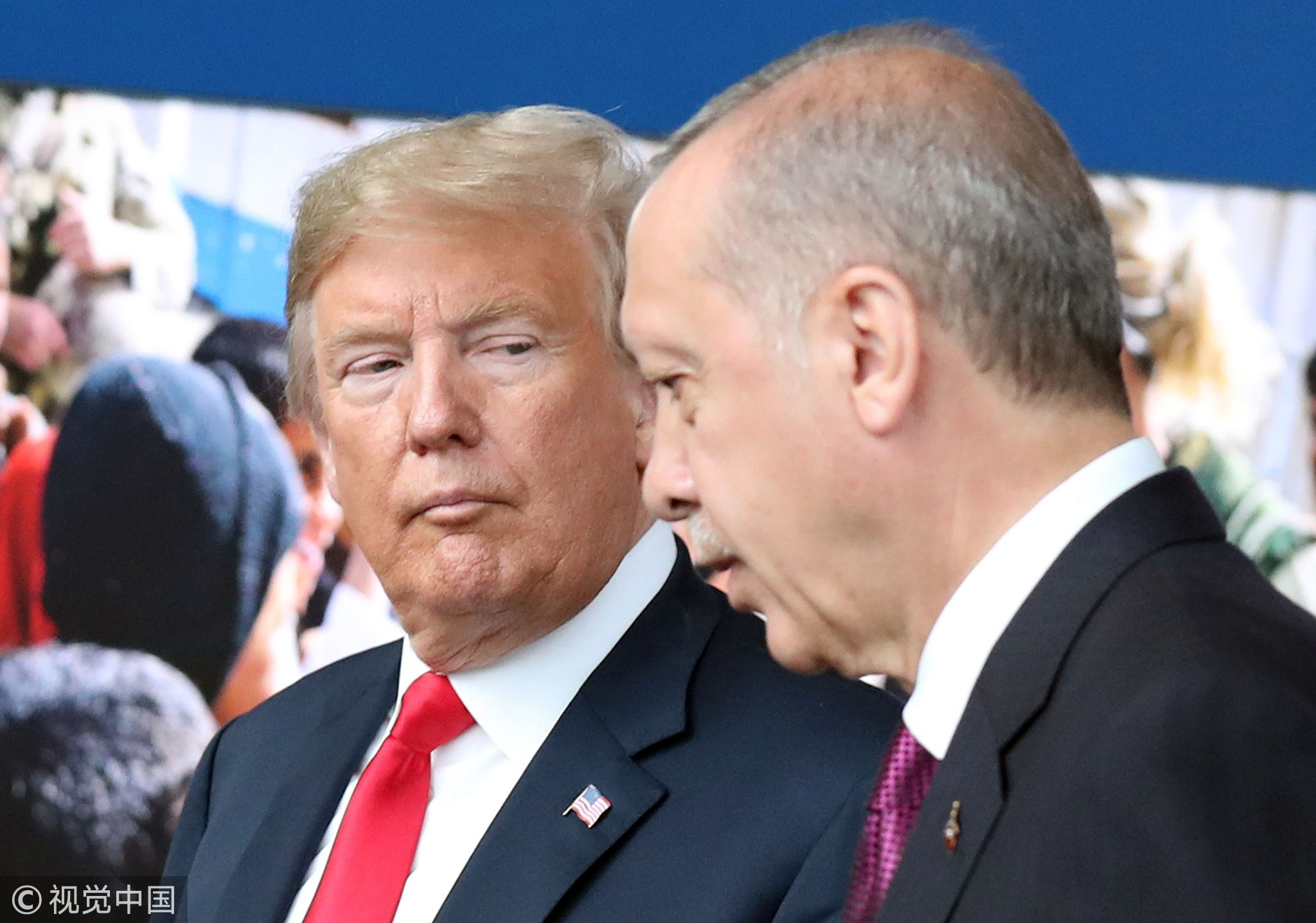
Politics
17:26, 13-Aug-2018
US-Turkey tensions: Why are relations souring?
Updated
16:32, 16-Aug-2018
By Zheng Weiyu, Meng Tao
02:08

The detention of American pastor Andrew Brunson has been central to the recent souring of relations. Brunson has been detained in Turkey since 2016 on terrorism charges, after authorities accused him of playing a role in that year's failed coup attempt.
The US has been asking the Turkish government to release Brunson -- an appeal that Turkey has repeatedly refused.
In retaliation, Trump announced the doubling of tariffs on Turkish steel and aluminum, noting relations with Turkey "are not good at this time". But more than Brunson and the tariffs, there are many other major sticking points between the two NATO allies.

July 11, 2018: US President Donald Trump (L) talks to Turkey’s President Recep Tayyip Erdogan (R) as they arrive for the NATO summit, at the NATO headquarters in Brussels, Belgium. /VCG Photo
July 11, 2018: US President Donald Trump (L) talks to Turkey’s President Recep Tayyip Erdogan (R) as they arrive for the NATO summit, at the NATO headquarters in Brussels, Belgium. /VCG Photo
First is Muslim cleric Fethullah Gulen. Ankara has accused US-based figure of being behind the 2016 coup attempt and requested Washington to hand him over -- a request the White House has denied. Turkey also arrested Turkish employees at the US consulate, on suspicion of links to the Gulen case.
Second is the Kurdish-led YPG, or People's Protection Units. Turkey views the group as a terrorist organization but the US sees it as a necessary partner in the fight against ISIL.
A third friction point in the relationship is military affairs. Having the second largest active military in NATO, Turkey's intention to buy air defense missile systems from Russia has made the US uneasy. Washington has threatened to botch plans for the delivery of fighter aircrafts to Turkey.
Last but not least, is Iran. Turkey and Iran have close economic ties. And Washington ratcheted up the economic pressure on Ankara, soon after slapping new sanctions on Tehran. Turkey imported more than 3 million tons of crude oil from Iran in the first 4 months of 2018, accounting for 55 percent of Turkey's total crude imports. Analysts believe Turkey will not join in with the US sanctions against the Islamic Republic.
These issues might look difficult to resolve, but analysts think there is still room to reset this relationship.

SITEMAP
Copyright © 2018 CGTN. Beijing ICP prepared NO.16065310-3
Copyright © 2018 CGTN. Beijing ICP prepared NO.16065310-3